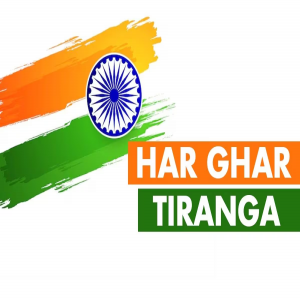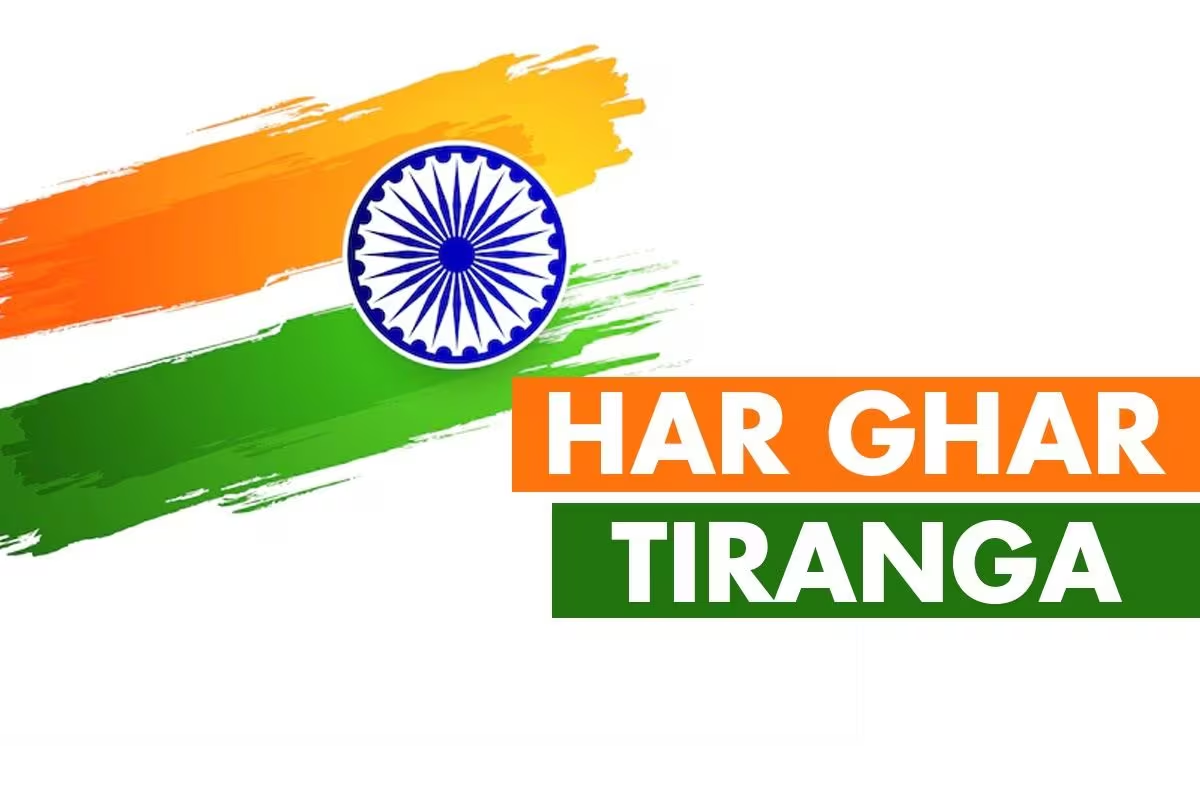
.png) Ram Puniyani
Ram Puniyani

On this Independence Day (2024), the NDA government called for the third edition of Har Ghar Tiranga (Tricolour in every house). This event first began in 2022 by the BJP government. It was a great surprise, as BJP's ideological parent RSS has been opposed to the Tricolour as the national flag all through, till January 26, 2001, when "According to the case, three activists Baba Mendhe, Ramesh Kalambe and Dilip Chatwani — along with others allegedly entered the RSS premises in Reshimbagh on January 26 in 2001 and hoisted the national flag there amid patriotic slogans."
A police case was registered against them, and they were jailed (Case no. 176), Nagpur 2001. They were acquitted, and the 51 years of RSS not hoisting the Tricolour ended. The Tricolour (with Charkha in the middle at the time) had emerged as an inspiring flag during the freedom movement. When Jawaharlal Nehru became the President of the INC 1929 Lahore session, he called upon the nation to celebrate January 26 as Independence Day by hoisting the Tricolour. In contrast, KB Hedgewar issued a circular on January 21, 1930, to hoist Bhagva Jhenda (Saffron Flag). The circular instructed the members of RSS to assemble at 6 PM at the places where shakhas met for "salutation to the National Flag, i.e., the Bhagwa Dhawaj."
Their argument was that the saffron flag represents the Hindu nation from times past, so there was no need for a new flag. All those participating in the freedom movement adopted the tricolour flag except those who kept aloof from the anti-colonial freedom struggle: the Muslim League (green flag) and RSS (saffron flag). Savarkar of Hindu Mahasabha also stood for the saffron flag.
MS Golwalkar, the Second RSS Chief, put forward the ideology of RSS vis the flag. He stated, "It was the saffron flag, which in totality represented Bhartiya [Indian] culture. It was the embodiment of God. We firmly believe that in the end, the whole nation will bow before this saffron flag."
At every stage, the RSS's unofficial mouthpiece used to come out with editorials opposing Tricolor and upholding the saffron flag. The flag committee was chaired by Dr Rajendra Prasad and had C Rajagopalachari, Maulana Azad, KM Munshi and Dr Ambedkar as its members. They considered all the other proposals and came to finalise Congress's flag, the Tricolor, with the difference that the Charkha in the flag was replaced by Ashok Chakra with 24 spokes in the flag. While moving the resolution for the flag in the Constituent Assembly, Nehru, with full appreciation of India's history and culture, saw the flag as a continuation of the glorious tradition of the past and hope for the future. His remarkably touching speech referred to the great sacrifices of Indian people to throw away the shackles of slavery. He also related it to Ashoka and his international fame and message of peace and saw in it a bridge to the global community.
As per Nehru, "We thought of a flag which in its combination and in its separate parts would somehow represent the spirit of the nation, the tradition of the nation, that mixed spirit and tradition which has grown up through thousands of years in India… we have associated with this flag of ours not only this emblem but in a sense the name of Ashoka, one of the most magnificent names not only in India's history but in world history "
Despite this, the RSS, Sangh Parivar, continued with glorifying Hindu nationalist ideology. Golwalkar, while denouncing the choice of the Tricolor as the National Flag, in an essay entitled 'Drifting and Drifting' in the book, 'Bunch of Thoughts' (collection of writings/speeches of Golwalkar), wrote: "Our leaders have set up a new flag for our country. Why did they do so? It is just a case of drifting and imitating….Ours is an ancient and great nation with a glorious past. Then, had we no flag of our own? Had we no national emblem in all these thousands of years? Undoubtedly, we had. Then why this utter void, this utter vacuum in our minds?"
Savarkar, too, refused to accept the Tricolor as the national flag. Demanding its boycott, declared in a statement on September 22, 1941: "So far as the flag question is concerned, the Hindus know no flag representing Hindudom as a whole than the 'Kundalini Kripanankit' Mahasabha flag with the 'Om and the Swastik' the most ancient symbols of the Hindu race and policy coming down from age to age and honoured throughout Hindustan… Therefore, any place or function where this Pan-Hindu flag is not honoured should be boycotted by the Hindusanghatanists [members of the Hindu Mahasabha]..."
In a way, this Har Ghar tirnaga is a clever move by the BJP Government. As per the changing times, it keeps its core agenda of Hindu nationalism unchanged and is adept at symbolic changes. It has a twin policy about symbols. On the one hand, it adopts some symbols deeply rooted in people's psyches. On the other hand, it has also tried introducing celebrations on some days to promote a divisive agenda. It has also floated the celebration of days (August 14) as 'Partition Horrors Remembrance Day,' intending to propagate that partition led to the tragedy for Hindus while keeping mum on the loss of the Muslim community. December 25 has been declared 'Good Governance day' and promoted to mark Atal Bihari Vajpayee's birthday. It is a deliberate attempt to undermine the celebration of Christmas.
The same Tiranga has also been used as an instrument of intimidation when hoards of youth, on the pretext of religious celebrations, take out their rallies waving the Tricolor through the Muslim majority areas or climb up mosques to hoist the Tricolor, particularly on Ram Navami days! The deeper intent of the BJP in Har Ghar Tiranga is merely for optics, bereft of the more profound commitment to the message inherent in this flag, sacrifice, peace and unity in diversity.